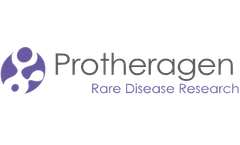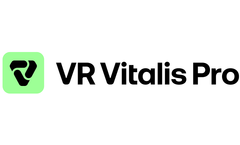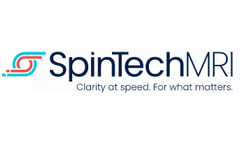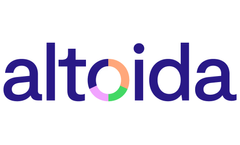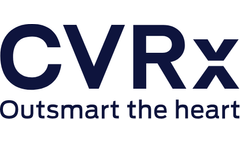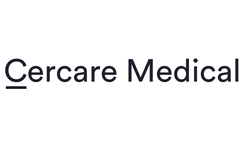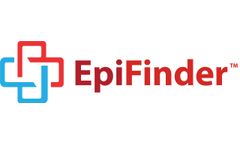Refine by
Neurological Articles & Analysis: Older
109 articles found
They are implicated in a wide range of conditions, from cardiovascular and metabolic disorders to neurological diseases and cancers. By facilitating the early stages of the drug development pipeline, GPCR Screening Services help streamline the identification of lead compounds, optimizing the chances of successful therapeutic outcomes. ...
In addition to these types mentioned above, it is also frequently used for neurological diseases, immunology, and inflammation.In conclusion, peptidomimetics continues to evolve and grow, with ongoing research efforts aimed at the development of new peptidomimetics with improved biological activity and therapeutic potential. ...
Here, we provide global customers professional technical support with experienced scientists and advanced technology in centrosome research and related fields, including oncology, immunology, neurology, cell biology, cellular dynamics, and many other areas. More: dendrimer conjugation ...
Differentiation of genome engineered in iPSCs (mutation introduction or correction) to neurons, offers an isogenic source of control-disease cell lines for basic research, drug development, hard-to-model neurological disorders, and potentially for gene ...
These engineered antibodies have become invaluable tools in the fight against a wide range of diseases, from cancer and autoimmune disorders to infectious diseases and neurological conditions. Alongside the development of antibodies, the assessment of immunogenicity, or the ability of a molecule to elicit an immune response, is a crucial consideration. ...
Approaches to the Evaluation of Anti-stroke Drugs Anti-stroke drugs are usually evaluated in animal models of stroke for post-stroke motor and coordination abilities to determine whether the drug is effective in recovering from neurological damage after stroke. In addition, studies have shown that cognitive deficits after stroke can sustain beyond general sensorimotor function. ...
User A young man (28 years old) who is confined to a wheelchair after a car accident or spinal cord injury. In addition to motor problems, he has mainly speech and memory problems, which significantly isolates him socially. ...
The high selectivity, resistance-overcoming capabilities, and ability to target previously undruggable proteins make PROTACs effective in various diseases, including neurological disorders, inflammatory diseases, and cancer. Peptide-Based SM-PROTAC Traditional PROTACs are linear structures that connect target protein ligands and E3 ligands with suitable linkers. ...
(5) Neurobiology: In the field of neuroscience, CD Genomics' Ribo-seq services offer insights into translational regulation in the brain and nervous system, supporting research on neurological disorders and neurodevelopment. (6) Plant Biology: Ribo-seq services are pivotal in studying how plants adapt to various growth conditions and environmental stressors, ...
They also exhibit promising results in treating neurological disorders, diabetes, liver diseases, and in cancer therapy. ...
Chimeric RNAs have also been implicated in other diseases, such as neurological disorders. Sequencing Technologies for Chimeric RNA Detection Chimeric RNA molecules, which arise from genomic rearrangements, alternative splicing, or fusion events, have emerged as crucial players in diverse biological processes and disease pathogenesis. ...
From exploring their roles in some neurological disorders, cardiovascular diseases to electrolyte imbalance—it's a resourceful tool. ...
Development of Herpes Simplex Virus Vectors Develop HSV vectors for gene therapy of rare diseases, particularly neurological disorders, to efficiently deliver genes into the central and peripheral nervous systems. ...
Researchers are also developing TPD drugs to treat other types of diseases. Neurological diseases, including Alzheimer's disease (AD), are often considered "incurable" because conventional small molecules cannot interfere with the function of disease-associated proteins. In a recent study conducted by a research team at Kyung Hee University in South Korea, researchers have ...
To understand the significance of the SpinTech MRI STAGE software platform, it helps to begin by asking a question: Given that MRI is an incredibly powerful diagnostic tool for neurological diseases like Alzheimer’s, dementia, Parkinson’s and multiple sclerosis (MS), why have radiologists and neurologists had to choose between conducting faster MRI exams and obtaining ...
We have identified the regulatory pathways to obtain Rx Drug Identification Numbers (DINs) in Canada and the USA for Epilepsy rare neurological conditions. CQ- 001, in combination with its proprietary processing and delivery method, is estimated to be approved in about 3 ...
People living with frontotemporal dementia, or FTD, are commonly misdiagnosed with psychiatric disorders or Alzheimer’s disease and other causes of dementia, such as Parkinson’s disease and vascular dementia. While frontotemporal dementia and Alzheimer’s disease can both cause dementia, there are distinct differences in impacted regions of the brain and, consequently, ...
The IPG may affect the operation of other implanted devices such as cardiac defibrillators, pacemakers, or neurological stimulation systems. For patients who currently have an implanted electrical medical device, physicians must verify compatibility with the implanted device during implantation of the system. ...
ByCVRx
Introduction Neurologic complications are frequently reported in COVID-19, but our understanding of their pathophysiologic causes and neuroanatomical correlates is limited. ...
In late November, EpiFinder Co-Founder Neel Mehta and Creative Officer Kristi Kietzmann left Arizona for a cross-country road trip. The journey from Arizona to Washington D.C. covered 5,504 miles over 22 days. At Washington D.C., CEO Robert Yao and other team members joined them for the 71s American Epilepsy Society (AES) conference. There, the team held 3 days of exhibits and presented. Why ...





